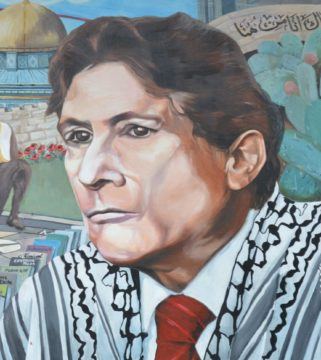Faisal Devji at the website of Hurst:
 There is a parallel between Timothy Brennan’s biography of Edward Said and the latter’s most famous book. Like Orientalism in 1978, Places of Mind appears at a time when colonialism and race have once again become subjects of public debate in North America and Western Europe. Reviewers have linked the reception of Said’s book and the politics it enunciated to that facing the supporters of movements like Black Lives Matter or Rhodes Must Fall. And it was to find out how we might understand such a trajectory that I was eager to read the biography. Said was one of the earliest non-European immigrants to achieve fame in the American academy, and I wanted to know how he managed to spark the first new debate on imperialism there since its formal dissolution.
There is a parallel between Timothy Brennan’s biography of Edward Said and the latter’s most famous book. Like Orientalism in 1978, Places of Mind appears at a time when colonialism and race have once again become subjects of public debate in North America and Western Europe. Reviewers have linked the reception of Said’s book and the politics it enunciated to that facing the supporters of movements like Black Lives Matter or Rhodes Must Fall. And it was to find out how we might understand such a trajectory that I was eager to read the biography. Said was one of the earliest non-European immigrants to achieve fame in the American academy, and I wanted to know how he managed to spark the first new debate on imperialism there since its formal dissolution.
That this debate was about imperialism as a form of knowledge, rather than of economic motives or political control, might be due to its posthumous character. For Said argued that orientalist ways of thinking both preceded and outlived colonialism, which made the struggle for freedom an epistemological one perfectly suited to the university and intellectual life in the West. And the context of this struggle was provided by the 1970s, a decade of immigration from the global south to the north.
More here.
